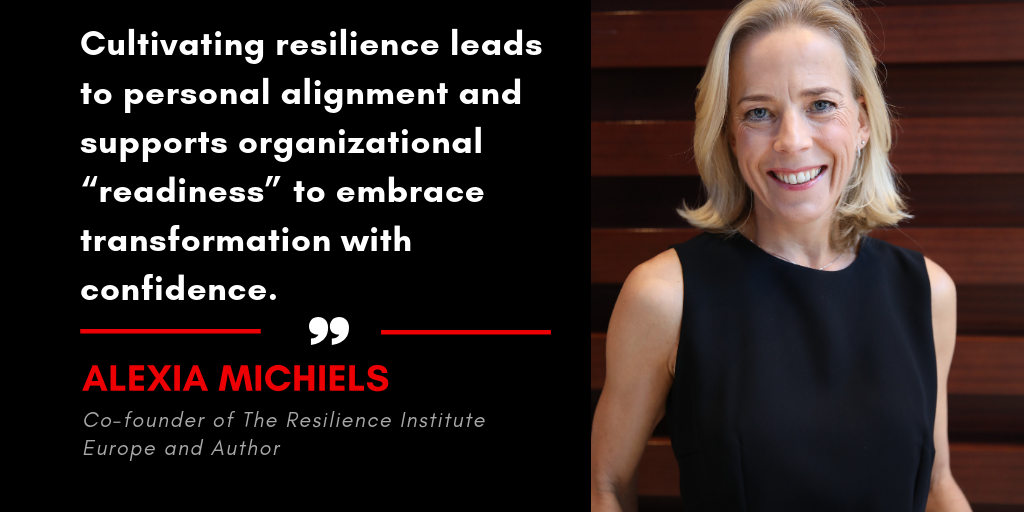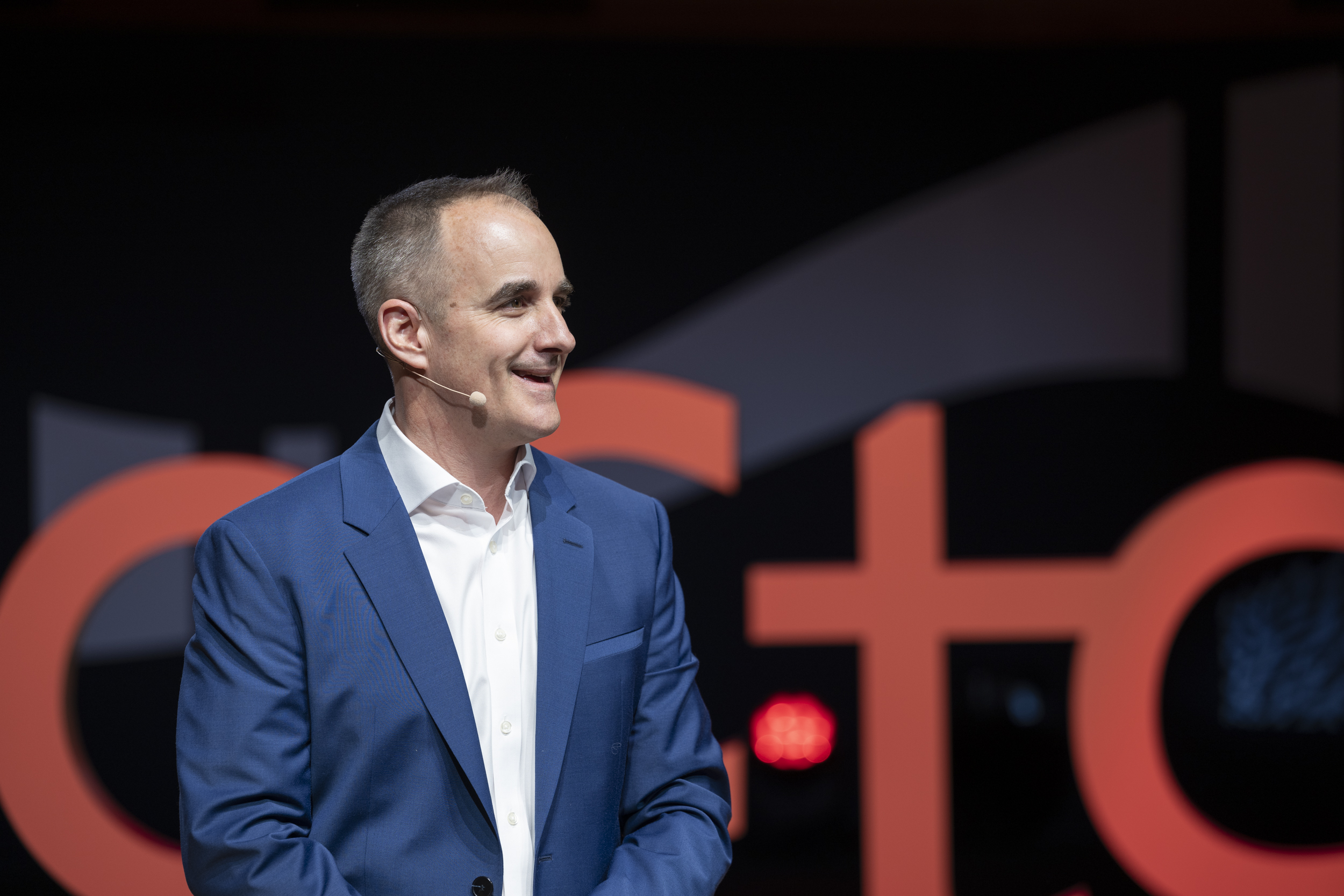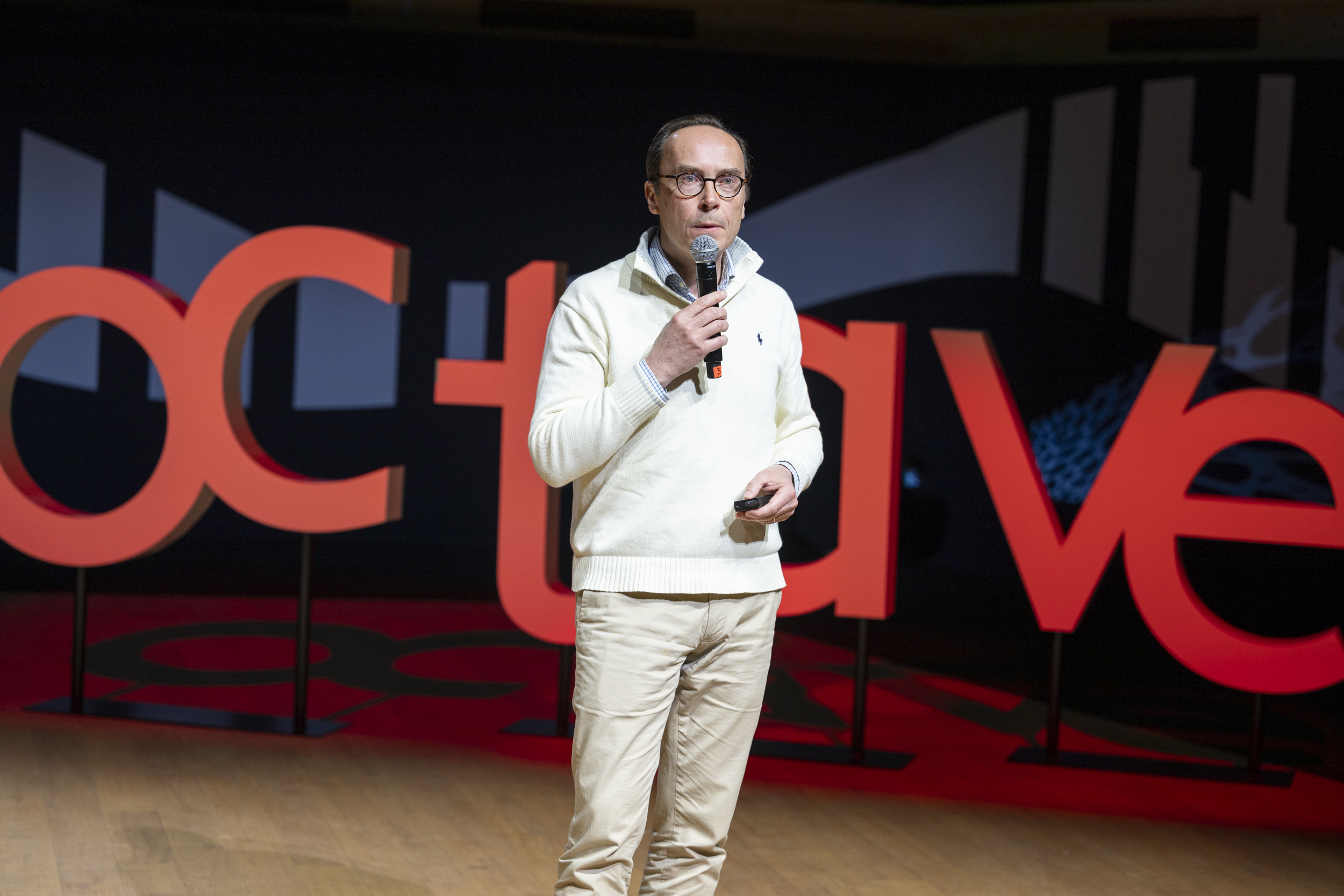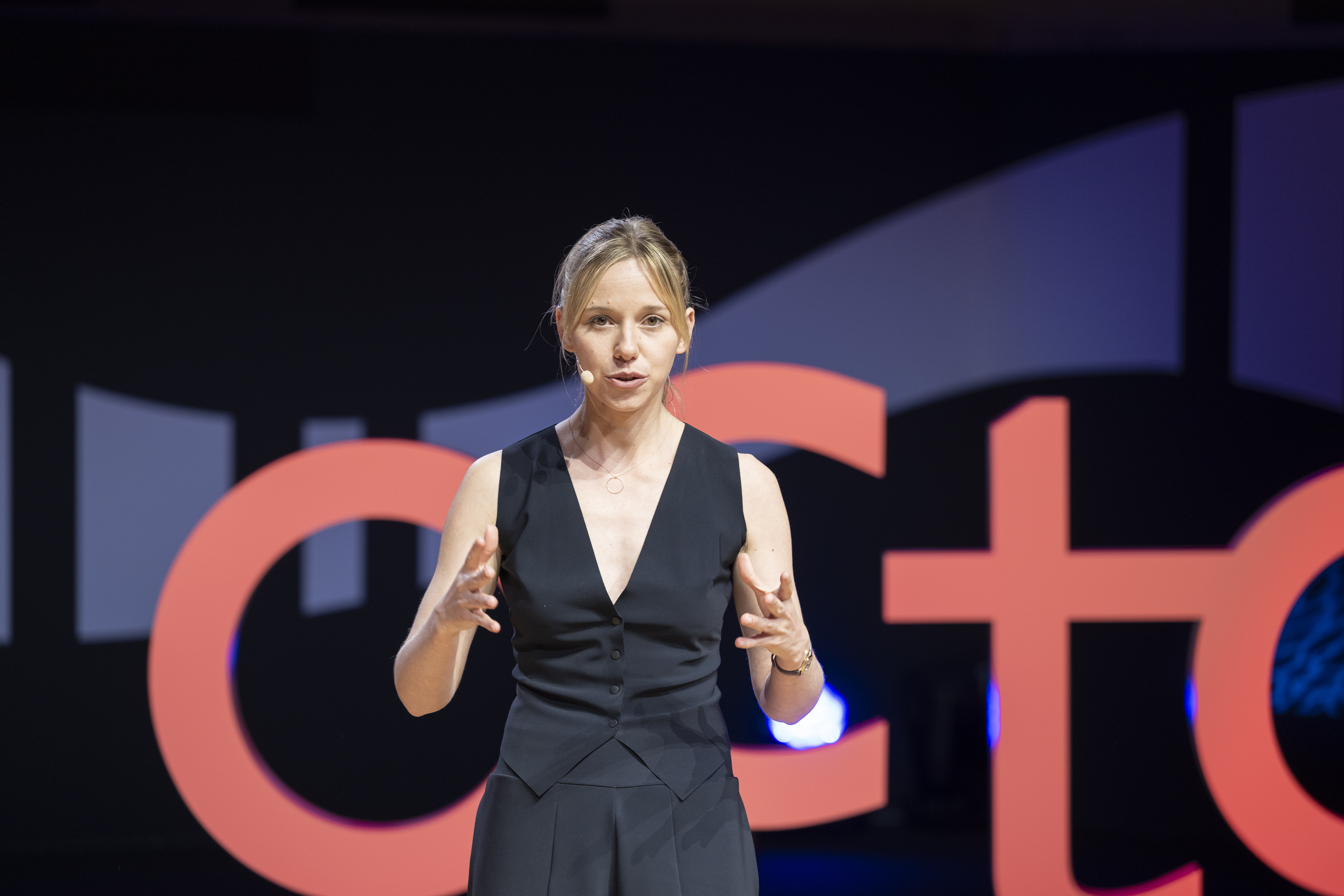Resilience at the heart of Transformation
Resilience at the heart of Transformation
Today’s world scene urges us all to accelerate change in the global economy and the society at large: economic growth is too slow, social inequality is too high and the Earth is suffocating. While no one can claim having the magic bullet for global challenges, one thing is clear: we need to transform the way we live, the way we work, the way we lead… we actually need to transform ourselves and be resilient!
“Let him who would move the world first move himself” Socrates
As is often stated by Bertrand Piccard, founder of the Solar Impulse Foundation, solutions do exist to address global challenges in a realistic way. What is missing is the will to activate these solutions fast enough. Beyond, processes and ideas, individuals are the stoppers or enablers of transformation. As politics tend to favour short-term views, the private sector may well be a powerful lever to accelerate changes on a large scale. The recent launch of the Business for Inclusive Growth (B4IG) by the OECD is encouraging: a coalition of 34 leading international companies – employing 3,5 million people around the globe – with a commitment to step upbusiness action to honour human rights throughout their value chains, build inclusive workplaces and strengthen inclusion in the economic ecosystems. An increasing number of CEOs and executives are ready to play their part and – as suggested by the growth of the B Corp movement – with approximately 3000 certified companies in the world – they aim to use business as a force for good.
This is a fascinating time and here is our opportunity: contribute, as a leader, to accelerate the transformation within our organisations leading to higher level of consciousness of all stakeholders and favour the emergence of a new paradigm. Proposing a strategic vision that is economically viable and socially responsible. That requires resilience! No doubt today’s leaders face challenges that require a different set of skills and a shift in attitudes. In his recent book “21 questions for the 21st century”, Yuval Noah Harari suggests that, in view of the unprecedented level of uncertainty, the best bet we can make today to be “future-fit” is to build our resilience. At the Resilience Institute, we do view Resilience as a learned ability to demonstrate the capacity to bounce back but also to grow from challenges, to care for others and nature, to develop talents and opportunities. Mobilising all of our resources – body, heart, mind and spirit – we are much better equipped to embrace transformation and inspire others on that path. It is about expanding the concept of sustainability to include the self: when you are more self-aware and committed to manage your personal resources properly, you are aligned; you develop a more integral view about others and become more conscious about the impact of your behaviours on the world.
Here are 10 best practices to strengthen resilience and prepare a solid ground for successful transformation.
Cultivating resilience leads to personal alignment and supports organizational “readiness” to embrace transformation with confidence. How is a culture of resilience created? Culture is shaped essentially by the behaviours of leaders. Leaders need to manifest the behaviours they want to diffuse in their organization.
Create calm and rejuvenate. Top athletes know well that a condition for high performance is regular, quick and effective, rejuvenation. This is a physiological condition for reaching high goals, sustainably. Likewise, leaders need to consider simple ways to integrate rejuvenation in a busy agenda.
- Take regular micro-breaks.
- Start a meeting by taking 3 deep and conscious breaths.
Cultivate physical energy. Transformation requires perseverance and energy. Next to regular exercise and healthy nutrition, restorative sleep is essential. As quoted by Matthew Walker in his book “Why we sleep” (2017): Sleep is the greatest legal performance enhancing drug that most people are probably neglecting.
- Avoid electronic screens before bedtime as they keep your mind alert. An hour on screen postpones the release of melatonin (the “sleep inducer” hormone) by 3 hours which at its peak will then be 50% lower. It therefore affects easiness to fall asleep and quality of sleep.
- Enjoy a 10-minute stretch when you wake-up.
- Consider walking or standing meetings.
Engage emotions. Positive psychology confirms that positive emotions have a signature that favours calm, energy, focus, creativity and engagement. Unfortunately, physiologically, humans tend to be negatively wired. It therefore requires a proactive effort to stimulate positive emotions in a team.
- Celebrate success or, at least, milestones to success.
- Demonstrate appreciation and provide constructive feedback (positive or progressive).
Train the mind and focus. As stated in the 2018 Global Resilience Report (The Resilience Institute, 2018), the ability to focus is the common thread between the most resilient people. While information overload puts us at risk of “infobesity”, controlling attention requires serious self- discipline.
- Switch off your emails one hour a day to focus fully on a task.
- Be more selective in the information you consume and produce.
Put your spirit in action. Ethics and value have never been more relevant. The young generation wants to work for companies that take a stand on the global challenges. According to a study by Korn Ferry (Korn Ferry & Hay Group, Executive survey 2016), companies focusing their employees on the organization’s purpose tripled annual growth rates versus the average in their sector. Having an authentic purpose can also help recruit and retain talents, attract consumers, and have a positive impact on the broader society.
- Be clear and loud about the purpose of the transformation. Share the “why” and articulate clearly an appealing long-term vision.
When shared and modelled in an organization, these practices foster a culture of resilience that can be a springboard to accelerate transformation. It gets to the heart of what may well enable us to thrive in the future: the idea that each business should be totally human and create societal value.
“Rough waters are truer tests of leadership. In calm water every ship has a good captain” (Swedish proverb).
 Originally from Belgium, Alexia Michiels is the co-founder of The Resilience Institute Europe.After gaining a degree in commercial and consular Sciences, she works 10 years in marketing and media (Procter & Gamble, RTL Bertelsmann, World Federation of Advertisers). She then lives 5 years in China where she meets Dr Sven Hansen, founder ofThe Resilience Institute. She understands that resilience needs to be cultivated on a daily basis mobilising all our resources : body, heart, mind and spirit. She accompanies, in many countries, leaders and teams to face, with joy and success, the challenges of a world in transformation. Alexia is the author of the book « L’Elan de la Résilience » / « The Resilience Drive » (FAVRE, 2017).
Originally from Belgium, Alexia Michiels is the co-founder of The Resilience Institute Europe.After gaining a degree in commercial and consular Sciences, she works 10 years in marketing and media (Procter & Gamble, RTL Bertelsmann, World Federation of Advertisers). She then lives 5 years in China where she meets Dr Sven Hansen, founder ofThe Resilience Institute. She understands that resilience needs to be cultivated on a daily basis mobilising all our resources : body, heart, mind and spirit. She accompanies, in many countries, leaders and teams to face, with joy and success, the challenges of a world in transformation. Alexia is the author of the book « L’Elan de la Résilience » / « The Resilience Drive » (FAVRE, 2017).
Share this Post







